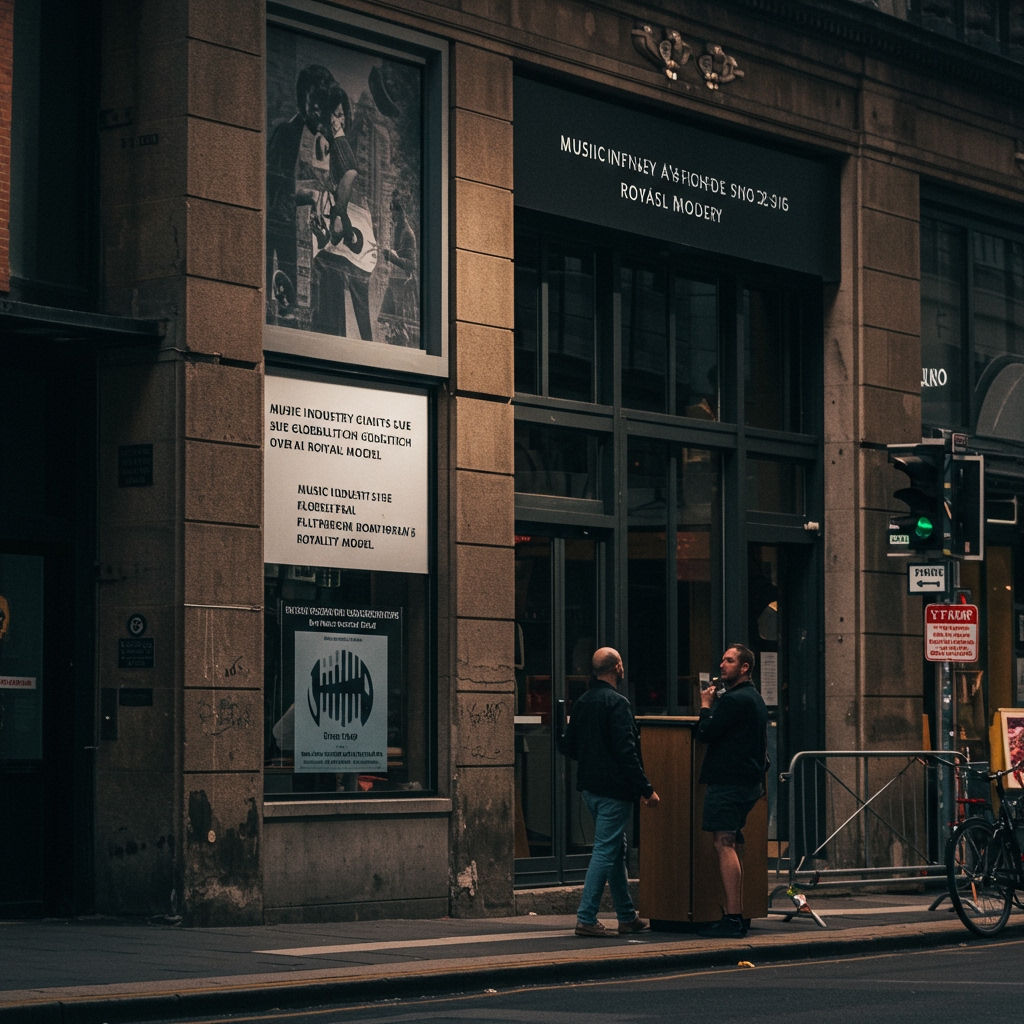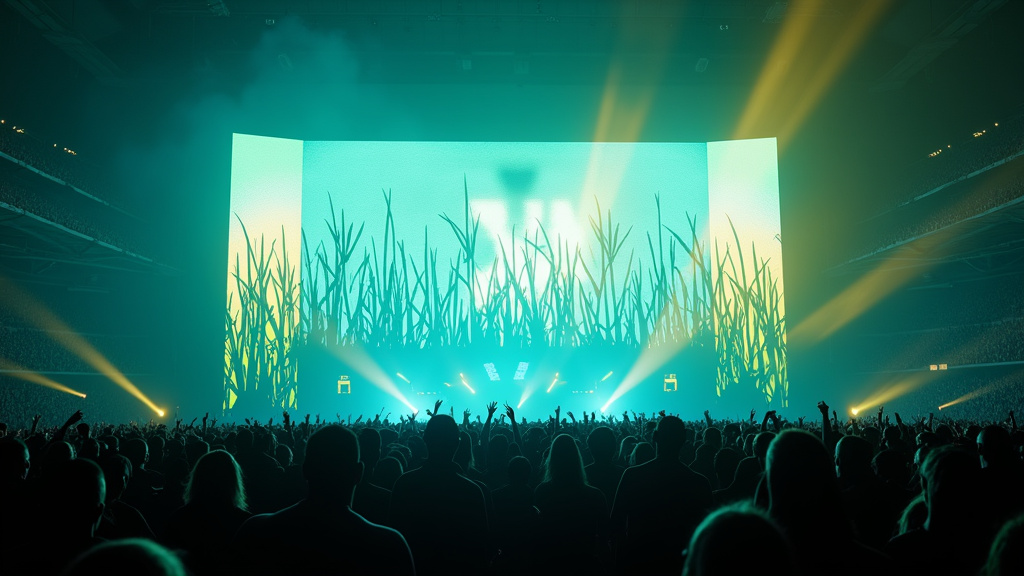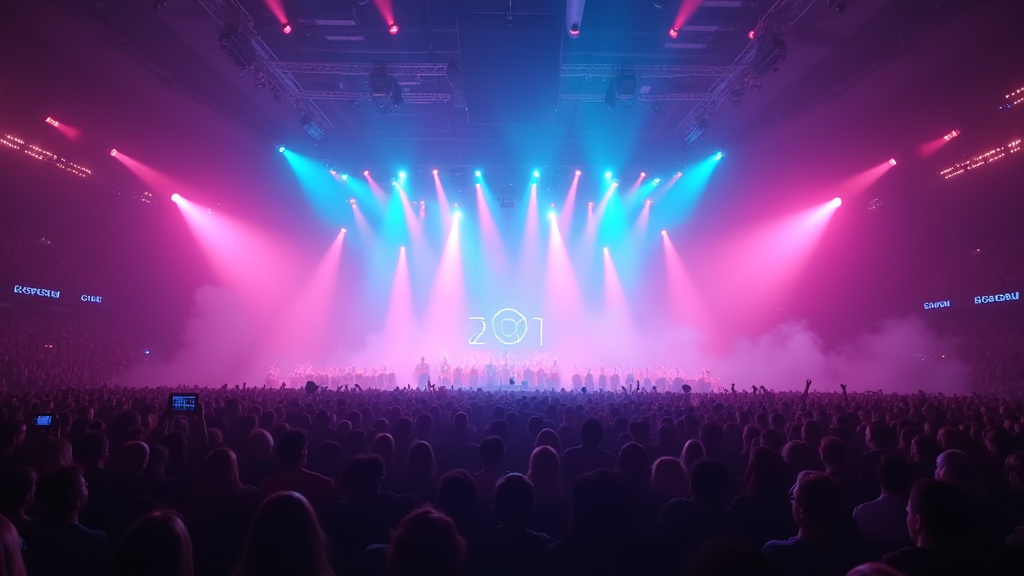Music Industry Giants Sue GlobalTech Over AI Platform’s Royalty Model
A seismic legal challenge has struck the burgeoning field of artificial intelligence in music creation. A powerful coalition of the world’s leading music corporations—Universal Music Group, Sony Music Entertainment, and Warner Music Group, collectively representing a significant portion of the global recorded music market—filed a federal lawsuit on Monday, February 17th, against technology behemoth GlobalTech. The suit, lodged in the Southern District of New York, targets GlobalTech’s newly launched TuneSphere AI platform, which debuted just two days prior on February 15th.
The core of the labels’ complaint centers on allegations that TuneSphere infringes upon existing copyright law and critically lacks a fair and equitable system for distributing royalties to artists and rightsholders whose vast catalogs of work were instrumental in training the sophisticated AI models underlying the platform. This legal action marks a pivotal moment, highlighting the escalating tensions between traditional creative industries and disruptive AI technologies, particularly concerning intellectual property rights and economic compensation models in the digital age.
Representatives for the plaintiff labels have articulated grave concerns regarding TuneSphere’s current operational model. They argue that by potentially enabling the creation of music that mimics or is derived from existing copyrighted works without proper licensing or compensation, the platform poses an existential threat to the value of human artistry. The lawsuit contends that GlobalTech has leveraged years of human creativity – the very sound recordings and musical compositions managed by these labels – to build a technology designed to generate new content, yet has failed to establish mechanisms that appropriately remunerate those creators and rightsholders for the foundational material used in the AI’s development and ongoing operation.
The labels are seeking significant legal remedies. Foremost among their demands is a preliminary and permanent injunction to halt or significantly alter the operations of the TuneSphere platform as it currently exists. Such an injunction, if granted by the court, could potentially force GlobalTech to redesign key aspects of its AI technology or licensing framework before it can continue operating or expanding. In addition to injunctive relief, the plaintiffs are also pursuing substantial monetary damages, arguing that GlobalTech’s actions constitute not only copyright infringement but also unfair business practices that could inflict severe financial harm upon the artists, songwriters, musicians, and labels within their respective rosters.
This lawsuit arrives amidst a global debate about the legal and ethical implications of generative AI. As AI models become increasingly adept at producing creative outputs, questions surrounding the provenance of training data and the ownership and compensation for AI-generated content are coming to the forefront. The music industry, having navigated previous technological disruptions like digital downloads and streaming, is now confronting a new challenge: AI’s capacity to learn from, and potentially replicate, existing musical styles, voices, and compositions.
The labels’ filing in the Southern District of New York specifically alleges that GlobalTech’s use of their copyrighted sound recordings and musical compositions to train the TuneSphere AI models constitutes unauthorized reproduction and distribution. Furthermore, they contend that the platform’s output, which users can generate, may create derivative works or performances that infringe upon their exclusive rights under copyright law. The lack of transparency regarding the training data and the absence of a clear, enforceable royalty structure for the use of that data and the output derived from it are central grievances outlined in the lengthy complaint.
Industry analysts suggest that the outcome of this lawsuit could set a critical precedent for the entire creative landscape. A ruling in favor of the labels could necessitate significant changes in how AI companies train their models on copyrighted material and how they compensate rightsholders. Conversely, a ruling favoring GlobalTech could embolden tech companies developing generative AI tools, potentially increasing the pressure on creative industries to adapt to new economic realities or lobbying for legislative changes.
The lawsuit underscores the fundamental tension between innovation and intellectual property rights. While AI offers exciting new possibilities for music creation and consumption, the music industry’s legal challenge reflects a determination to ensure that technological progress does not come at the expense of the creators and investors who built the foundations upon which these new technologies are being built. The labels argue that without proper licensing and compensation mechanisms, AI platforms like TuneSphere could ultimately devalue music itself, making it harder for artists to earn a living and for labels to continue investing in new talent and productions.
The filing on Monday, February 17th, initiated what is expected to be a complex and closely watched legal battle. The Southern District of New York is a prominent venue for copyright litigation, known for handling significant cases impacting the entertainment and technology sectors. Both sides are expected to present sophisticated arguments regarding the interpretation of existing copyright law in the context of novel AI technologies.
As of the time of the filing and this report, GlobalTech had not yet issued an official public response to the lawsuit. The technology giant is expected to mount a robust defense, likely arguing that its use of data falls under fair use principles, that its AI output is transformative, or that the labels’ interpretation of copyright law is overly restrictive in the context of AI training and generation. The legal process is likely to be protracted, involving discovery, potential motions for summary judgment, and possibly a trial, unless a settlement is reached.
This case is poised to be a landmark decision shaping the future intersection of artificial intelligence, copyright law, and the economics of creative industries worldwide. The music industry is sending a clear message: the use of their protected content to power AI platforms requires legal authorization and fair compensation, and they are prepared to litigate to protect their rights and the value of artistic work in the digital, AI-driven era.





